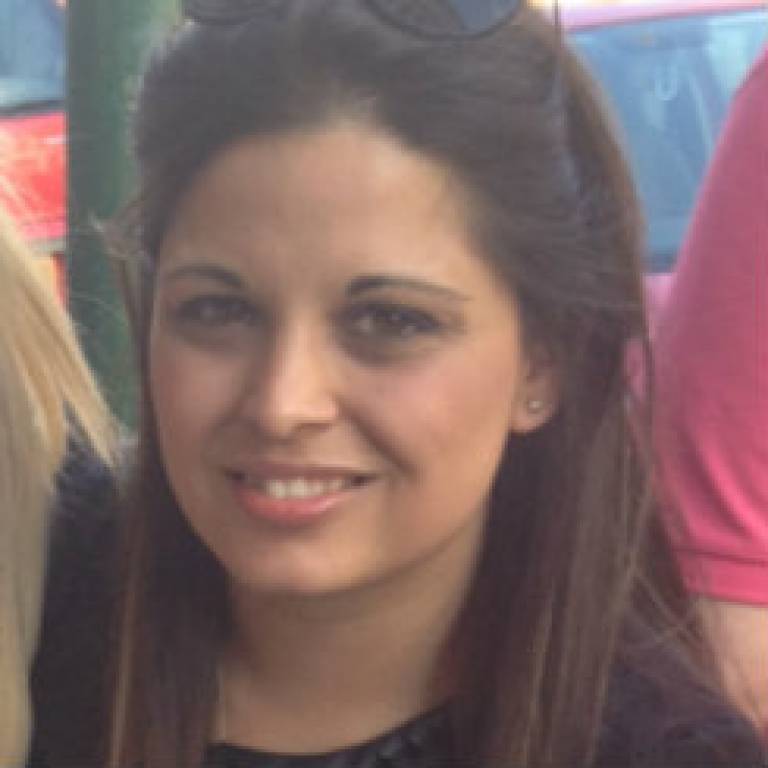Seven questions with Aasha Cowey
2 June 2016
This week we put seven questions to Aasha Cowey (née Greensmith) who is working full-time for the NHS, while studying part-time for a Health Informatics MSc and is set to graduate this year.

1. Why are you interested in Health Informatics and what do you plan to do in the future?
I have been working for the NHS for 7 years since completing my undergraduate degree in Economics back in 2008. I have spent the last three years completing the Health Informatics MSc to support my professional career going forwards.
My first role in the NHS was working for an ambulance service as an Emergency Medical Dispatcher taking 999 calls. I could see early on the benefits that better utilisation of technology and data could bring to patients and clinicians alike and accidentally discovered Health Informatics along the way.
I more recently completed the NHS Graduate Management Training Scheme and UCL currently provide the educational component of the Health Informatics Specialism, which is why I ended up studying here. Luckily for me I'm only in Reading so not too far away.
The NHS has lagged behind other industries when it comes to using technology and data effectively for a variety of reasons. UCL recently created an Institute of Health Informatics, including the department where I'm doing my degree. This is a growing area for the university as well as the NHS.
The graduate scheme funded my postgraduate diploma qualification but I found it really interesting and was determined to complete the MSc qualification which is what I am doing now. This involves me taking on a dissertation to earn my final credits. I am researching healthcare experiences and expectations of 'digital natives', a group of people who have lived with smartphones and online services as the norm!
2. How do you balance working full time with educational commitments?
It can be really, really tough. A typical module is 8 weeks-long and combines a mixture of online learning and a couple of intensive face to face days. The dissertation module is across 9-10 months with a face to face day most months. This means I don't need too much time out of the office for my lectures, yet gives me the opportunity to connect with my tutors and peers. I'm not sure you would build the same rapport with true distance learning.
It does however mean weekends and evenings are often spent completing MSc work. I am also currently on campus much more frequently undertaking data collection for my dissertation*.
I am having to balance my educational and work commitments very carefully. My day job is very demanding and the work doesn't go on hold just because I need to study.
It certainly helps that the dissertation area I am doing complements my current professional role. I imagine it is much more difficult to balance study in an unrelated subject and I admire those who persevere with it!
The tutors are also supportive and if work demands become too tough they're always around for a telephone call or coffee.
3. What is the most interesting thing you've done, seen or got involved with while at UCL?
I live and work full time in Reading, so I only tend to come onto campus a few times a term for my face to face sessions or dissertation commitments. There does however always seem to be something interesting going on, whether it's a campaign or an art show.
4. Have you discovered any hidden gems during your time at UCL?
The UCL Museum of Zoology is really cool and it was free entry. It's also a novelty to be able to buy two drinks for a fiver, and get change. That's the mature student in me talking.
5. Give us your top three things to do/see/go to in London:
- Just go for a walk! I love wandering around (avoiding the tube) and looking at all the tourist hotspots from the Towers of London to Big Ben!
- Music… whatever you're into London is the ideal location for seeing bands.
- Shopping - need I say more?
6. Who inspires you and why?
I'm really inspired by patients and their families who have given up their time to share their stories and input to make things better. It's a brave thing to do and helps the NHS to be a learning organisation.
7. What would it surprise people to know about you?
I have
delivered a baby over the telephone when I worked for the ambulance service.
*Aasha is recruiting students to take part in focus groups on the theme of digital technology as part of her dissertation. For more information and a chance to earn £10 visit Aasha's study advert.
 Close
Close

